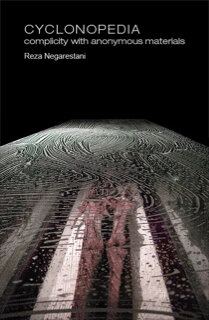Pharoah
Paranormal Adept
Re Steven's post: "Will resume pursuit of Dowell critique ... It was in terms of two dimensionality (Chalmers) I think ... have to learn to book mark,"
You do that far better than I do, Steve, or otherwise keep track of sources and links. I've been amazed by your ability to do that.
Re that McGinn paper linked and extracted above, you were the one who first brought it to my attention. I read it again tonight and it's brilliant. Though I still sense something is 'off' in McGinn's passages on language and 'universal grammar', and if there is something off about it it's most likely something off in Chomsky's theorizing. I'm presently searching for critiques of Chomsky's theory. [edited] If some core syntactic structures are found across all human languages and constitute a minimal 'universal grammar', these could support adequately a claim regarding a'universal grammar', but the semantics of languages are another matter. Universal 'grammar' can't "control" what we are able to think. McGinn actually uses the word 'control' in that context at one point in the paper. But he moves beyond the boundaries implied in that idea in the last few fascinating paragraphs of the paper when he refers to the subconscious mind as the source of much of what we can think without our being able (yet) to understand how.
I didn't realise that my comments where going to lead to so many questions...@Pharoah, I'm trying to understand what's involved in the program you're advocating that is not already practiced in various forms of psychotherapy, e.g., cognitive-behavioral therapy, family of origin therapy, and more classic forms of deep therapy (Jungian, Adlerian, etc.). Can you clarify the differences in what you're prop0sing?
Also, is there a paper by Panksepp that presents his ideas concerning psychotherapy? I haven't listened to the interview you and Steve refer to because I prefer to get my information from written texts rather than taped interviews and lectures. But if these ideas of Panksepp are available only in the taped interview I'll listen to it.
My impression is that what you're talking about is effecting a change in how dysfunctional and socially destructive ideations are modified in psychotherapy and psychoactive drug therapies the purpose of which change is to minimize suffering both for individuals and communities in which they exist. Steve asked above: "How would the associative/feeling potency be adjusted? Medication? Talk therapy or do you mean some kind of direct alteration of the neural substrate?" I'm also interested in the latter question. Are you proposing some kind of physical interventions in the neurological processes of persons afflicted with what we would likely agree to call self-destructive and socially destructive psychological conditions? If so, does that imply that you theorize only neurological sources for psychological maladjustment? It's always seemed to me that most psychological maladjustment arises in childhood out of inadequate (even destructive) parenting or later in life from existential conflicts arising from conflicts in values between an individual and his/her social mileau, that in general sickness in individuals is produced by the sickness of their societies and that the level at which intervention most needs to be undertaken is the social, economic, ideological level of values dominant in sick societies. The essential question is whether 'adjustment' of individuals to sets of negative, destructive values dominant in their society is necessarily a 'good thing' even if it produces 'stability'. What do you mean by 'stability'?
The first thing to say, is that I do think that HCT must have an impact on therapies.
The second thing is that I am ignorant. I just know that HCT must be relevant.
Thirdly, I made a mistake, not "stabilising phenomenal feelings" but 'stabilising understandings regarding the qualitative relevance of realtime experiences', where "understandings" are not part of an individual's awareness but a relation between environmental causal associations and the feelings they seem to generate. The methods of doing this are varied... eg DBS, drugs, therapies (yes as already exist)
Therapy: I would imagine a therapist to say, ooh, aah, that works because of this, and I think I could try that because it should work because of the other.... etc. Basically, a grounding in causes improves the means for targetting treatments. HCT makes for a good evaluative tool.
With regard to drugs: Panksepp has said, that ALL drug treatments for mental problems to date have been discovered by accident, none of them relying on science. And of course there is direct brain stimulation, why and how it should work and be applied - of course, one could always explore the options by trial and error, but HCT might be an improvement on this.
Conflict negotiation: Again conflict negotiation does exist, and there are methods applied to create resolution. HCT provides a theoretical framework as to what methods would work and why (in terms of conceptual stability, instability, restability and their relation to more primitive affectations on the individual. e.g. fear of change or of other cultures etc etc... big subject)



